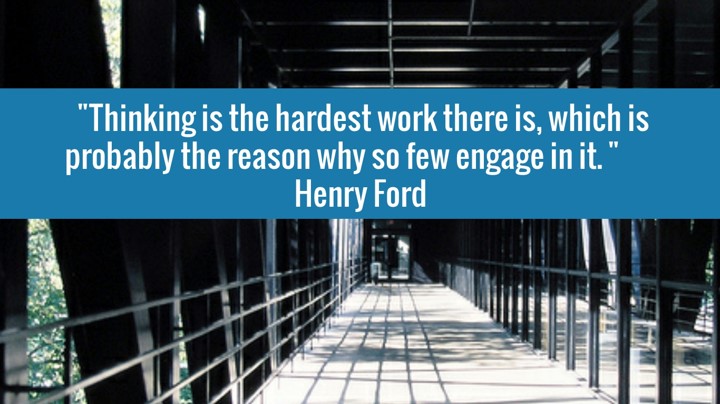
By Linda Fisher Thornton
In Part 1 of this series I looked at the importance of Deep Thinking. In Part 2, we’ll consider the Context. No matter how much effort it takes to understand the context, we can’t expect to make an ethical decision without taking that step.
Understanding the Context
Without seeing the context – a broad and sweeping view of the issue we are discussing or trying to resolve and factors in the environment that affect it – we are just describing or trying to solve a SUBSET of the real issue. We are not seeing the whole issue. To use ethical thinking and decision-making, we must remind ourselves that the SUBSET is not the whole.
If you drive a sports car on a crowded city street with your eyes closed, people are going to get hurt (including you). Making decisions without understanding the context is similarly risky.
A clear understanding of the context is an important part of staying ethically aware and competent, and both are necessary qualities for responsible leadership. Ethical leaders know that there can be no ethical awareness without understanding the context, and without context awareness, competence and responsibility are also out of reach.
— Linda Fisher Thornton, Ethical Leaders Understand the Context, Leading in Context Blog
It’s easy to find one or two pieces of information about an issue and think we understand it. In Context Matters: What We’re Learning About Food I explored what happens when we think about nutrition by looking at individual nutrients without considering the context. That example drives home the point because most of us have probably gone through life thinking about nutrition as a collection of individual nutrients.
“Applying the ‘food matrix’ concept we learn that we can’t accurately assess nutritional impact based on breaking down individual nutrients in isolation from the whole. We have to consider what we added and what we left out. In other words, context matters.”
Linda Fisher Thornton, Context Matters: What We’re Learning About Food, Leading in Context Blog
Understanding the context helps us make choices that “work” ethically in the particular setting and it prepares us to adapt to a changing world. What is ethical in one context may not be in another.
Context Helps us See the Bigger Meaning
Some people may feel that it’s wrong to hold someone accountable now for an ethical violation when the same action was not punished in the past. Considering the context helps us see that this change is not a result of “inconsistent” treatment, but of increasing expectations and accountability for ethical behavior.
“Full accountability – holding people accountable for ethical problems that were previously overlooked – may appear on the surface to be inconsistent and unfair. But when you take a closer look at the trends, you will discover an important reason why people are more frequently being held fully accountable. It is because ethical expectations are increasing and expanding.”
Linda Fisher Thornton, Full Accountability for Ethics: The New Normal, Leading in Context Blog
Context is an important element in ethical decision making.
What Ethical Thinkers and Leaders Don’t Do
- Assume they already know the context
- Ignore new research or the informed opinions of others outside of their groups
- “Save time” by ignoring the context so they can make a quick and decisive decision
What Ethical Thinkers and Leaders Do
- Ethical thinkers and leaders take time to understand the context
- They look outside of their own groups to see what others are learning about the issue
- They carefully consider the context before making decisions or taking action
- They adjust their thinking as new credible information emerges
Leaders who ignore the context frustrate those they lead and serve. Why? Ignoring the context and making a quick decision often leads to costly and time-consuming fixes later. The fallout from decisions made in a vacuum can be severe and leaders can miss critical ethical issues. Taking the time to understand the context, we more easily make decisions that fall within the ethical zone.
Watch for Part 3, when I’ll explore the importance of embracing complexity.

Unleash the Positive Power of Ethical Leadership
© 2009-2023 Leading in Context LLC

2 comments